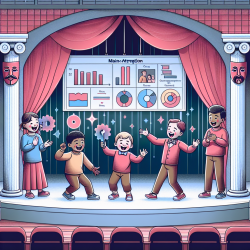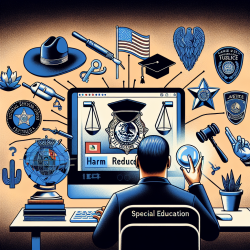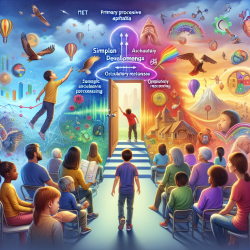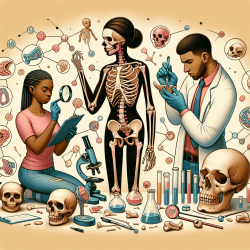In the field of speech-language pathology, creating meaningful and lasting improvements in social interaction for children with Autism Spectrum Disorder (ASD) is a top priority. The research article "Peer-Mediated Theatrical Engagement for Improving Reciprocal Social Interaction in Autism Spectrum Disorder" presents a compelling case for the use of peer-mediated interventions, particularly through theatrical engagement, to enhance social skills in children with ASD. Here, we will discuss how practitioners can implement these findings to improve their practice and encourage further research in this promising area.
Key Findings from the Research
The study highlights three critical components for advancing, maintaining, and generalizing social interaction skills in children with ASD:
- Peer Mediation: Involving typically developing peers as agents of change can significantly improve social behaviors and engagement in children with ASD.
- Active Learning: Social skills are best acquired through active engagement and practice, rather than passive observation.
- Supportive, Natural Contexts: Delivering interventions in environments that are natural and supportive can enhance motivation and participation, leading to better generalization of skills.
Implementing Peer-Mediated Theatrical Engagement
Practitioners can incorporate these findings into their practice through the following strategies:
- Training Peers: Ensure that peers are well-trained in recognizing and supporting social difficulties. This can be achieved through structured training sessions that include modeling, reinforcement, and role-playing exercises.
- Engaging in Active Learning: Use role-playing, improvisation, and other theatrical techniques to create opportunities for children with ASD to practice social interactions in a dynamic and engaging way.
- Creating Supportive Environments: Conduct interventions in community-based settings, such as school theaters or community centers, to provide a naturalistic context that encourages participation and reduces stress.
Encouraging Further Research
While the findings from the SENSE Theatre program are promising, further research is needed to refine and validate these interventions. Practitioners are encouraged to document their outcomes and share their experiences with the broader community. Collaboration with researchers can help in developing standardized intervention packages that can be widely implemented.
Conclusion
By integrating peer mediation, active learning, and supportive, natural contexts into their practice, speech-language pathologists can significantly enhance the social skills of children with ASD. The use of theatrical techniques provides a unique and effective way to engage children and promote social interaction. For those interested in delving deeper into this research, the original paper offers valuable insights and can be accessed here.










